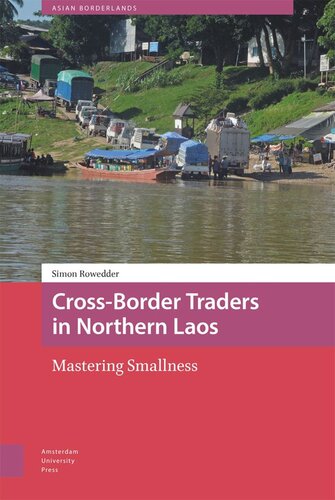

Most ebook files are in PDF format, so you can easily read them using various software such as Foxit Reader or directly on the Google Chrome browser.
Some ebook files are released by publishers in other formats such as .awz, .mobi, .epub, .fb2, etc. You may need to install specific software to read these formats on mobile/PC, such as Calibre.
Please read the tutorial at this link: https://ebookbell.com/faq
We offer FREE conversion to the popular formats you request; however, this may take some time. Therefore, right after payment, please email us, and we will try to provide the service as quickly as possible.
For some exceptional file formats or broken links (if any), please refrain from opening any disputes. Instead, email us first, and we will try to assist within a maximum of 6 hours.
EbookBell Team

4.0
76 reviewsNorthern Laos has become a prominent spot in large-scale, top-down mappings and studies of neoliberal globalisation and infrastructural development linking Thailand and China, and markets further beyond. Yet in the common narrative, in which Laos appears as a weak victim helplessly exposed to its larger neighbours, attention is seldom paid to local voices. This book fills this gap. Building on long-term multi-sited fieldwork, it accompanies northern Lao cross-border traders closely in their transnational worlds of mobilities, social relations, economic experimentation and aspiration. Cross-Border Traders in Northern Laos: Mastering Smallness demonstrates that these traders’ indispensable but often invisible role in the everyday workings of the China-Laos-Thailand borderland economy relies on their rhetoric and practices of ‘smallness’—of framing their transnational trade activities in a self-deprecating manner and stressing their economic inferiority. Decoding their discursive surface of insignificance, this ethnography of ‘smallness’ foregrounds remarkable transnational social and economic skills that are mostly invisible in Sino-Southeast Asian borderland scholarship.